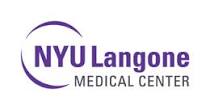The Human Epilepsy Project
| Status: | Active, not recruiting |
|---|---|
| Conditions: | Neurology, Neurology |
| Therapuetic Areas: | Neurology |
| Healthy: | No |
| Age Range: | 12 - 60 |
| Updated: | 9/2/2018 |
| Start Date: | July 2012 |
| End Date: | July 2020 |
HEP is a five-year, prospective, observational study whose primary goal is to identify
clinical characteristics and biomarkers predictive of disease outcome, progression, and
treatment response in participants with newly treated focal epilepsy.
clinical characteristics and biomarkers predictive of disease outcome, progression, and
treatment response in participants with newly treated focal epilepsy.
Epilepsy is a serious disease. It affects approximately 2.4 million Americans, with a
lifetime risk estimated at 3%. More than 181,000 Americans develop epilepsy every year, and a
substantial proportion has seizures that cannot be controlled by available medications. For
the vast majority of patients with epilepsy, we do not understand the biological basis of
their disease; we do not know whether a given anti-epileptic drug (AED) will be effective;
and we cannot predict the severity of the seizure disorder, the potential emergence of
co-morbidities, or the likelihood of remission.
The Human Epilepsy Project seeks to answer these unknowns by collecting high-resolution
clinical information and treatment response, MRIs, EEGs, and blood and urine samples for
biomarkers. A major outcome of the project is to create an open data repository of clinical
information and biologic samples for future studies.
HEP may have a transformative impact on epilepsy diagnosis and treatment by identifying
critical clinical features and biomarkers at the onset of epilepsy that can be used to
predict outcome and guide therapy. We hope to identify subsets of patients at high risk for
pharmacoresistance who may benefit from more aggressive initial therapy and earlier
consideration for surgical treatment. The existence of biomarkers that predict the likelihood
of disease remission would dramatically affect treatment decisions and counseling for
millions of patients.
In addition to its impact on current clinical care, the data and specimens collected in HEP,
including sequential neuroimaging, electrophysiology and metabolite profiles, and banked DNA
for the purpose of future genomics studies, have the potential to provide new insights into
the biological basis of focal epilepsy, which will advance our efforts to discover effective
treatments and cures for this disorder.
lifetime risk estimated at 3%. More than 181,000 Americans develop epilepsy every year, and a
substantial proportion has seizures that cannot be controlled by available medications. For
the vast majority of patients with epilepsy, we do not understand the biological basis of
their disease; we do not know whether a given anti-epileptic drug (AED) will be effective;
and we cannot predict the severity of the seizure disorder, the potential emergence of
co-morbidities, or the likelihood of remission.
The Human Epilepsy Project seeks to answer these unknowns by collecting high-resolution
clinical information and treatment response, MRIs, EEGs, and blood and urine samples for
biomarkers. A major outcome of the project is to create an open data repository of clinical
information and biologic samples for future studies.
HEP may have a transformative impact on epilepsy diagnosis and treatment by identifying
critical clinical features and biomarkers at the onset of epilepsy that can be used to
predict outcome and guide therapy. We hope to identify subsets of patients at high risk for
pharmacoresistance who may benefit from more aggressive initial therapy and earlier
consideration for surgical treatment. The existence of biomarkers that predict the likelihood
of disease remission would dramatically affect treatment decisions and counseling for
millions of patients.
In addition to its impact on current clinical care, the data and specimens collected in HEP,
including sequential neuroimaging, electrophysiology and metabolite profiles, and banked DNA
for the purpose of future genomics studies, have the potential to provide new insights into
the biological basis of focal epilepsy, which will advance our efforts to discover effective
treatments and cures for this disorder.
Inclusion Criteria:
- Clinical seizure(s) and history consistent with focal epilepsy
- At least two confirmed spontaneous seizures, at least 24 hours apart, in the 12 months
prior to enrollment
- Complete AED history prior to enrollment (with approximate dates and doses) is
available (exception can be made for AEDs taken for <1 week)
- Age ≥12 years and ≤60 years at time of seizure onset
- Age ≥12 years and ≤60 years at time of enrollment
- Treatment instituted not more than 4 months prior to enrollment
- One of the following:
1. Normal MRI with inter-ictal EEG showing focal abnormality (focal sharp waves or
focal slowing)
2. Normal MRI and normal inter-ictal EEG, with clinical or electrographic seizure
activity on ictal EEG
3. Definitive clinical history of recurrent seizures consistent with focal epilepsy,
adjudicated by central reviewers, if normal MRI and normal EEG
4. Focal lesion (non-progressive) on MRI with normal EEG (acceptable focal lesions
include MTS, FCD, single cavernoma, and AVMs that are not of large size and lack
significant amounts of hemosiderin)
Exclusion Criteria:
- Idiopathic or symptomatic generalized epilepsy
- Any epilepsy etiology that could produce significant gliosis or brain injury and would
be likely to alter biomarkers. These include:
1. Epilepsy with an etiology occurring in the previous two years that would produce
significant CNS injury (e.g., traumatic brain injury that involves direct
disruption of brain tissue, stroke, encephalitis)
2. History of intracranial bleeding (e.g., subarachnoid, intraparenchymal)
- Identified genetic epilepsy syndrome
- Presence of moderate or greater developmental or cognitive delay prior to seizure
onset (e.g., if an adolescent, not in self-contained classroom; if IQ is documented,
should be > 70)
- History of chronic drug or alcohol abuse within the last 2 years
- IGE/focal epilepsy mixed syndromes
- Progressive neurological disorder (brain tumor, AD, PME, etc.)
- Major medical co-morbidities such as renal failure requiring dialysis, metastatic
cancer, HIV, or significant liver or renal disease
- Autism Spectrum Disorder
- Seizures only during pregnancy
- History of previous or current significant psychiatric disorder that would interfere
with conduct of the study
We found this trial at
27
sites
Geisinger Medical Center Since 1915, Geisinger Medical Center has been known as the region’s resource...
Click here to add this to my saved trials
Emory University Emory University, recognized internationally for its outstanding liberal artscolleges, graduate and professional schools,...
Click here to add this to my saved trials
Click here to add this to my saved trials
Beth Israel Deaconess Medical Center Beth Israel Deaconess Medical Center (BIDMC) is one of the...
Click here to add this to my saved trials
University of Miami A private research university with more than 15,000 students from around the...
Click here to add this to my saved trials
University of Michigan The University of Michigan was founded in 1817 as one of the...
Click here to add this to my saved trials
Click here to add this to my saved trials
University of Maryland Medical Center Founded in 1823 as the Baltimore Infirmary, the University of...
Click here to add this to my saved trials
Click here to add this to my saved trials
Click here to add this to my saved trials
171 Ashley Avenue
Charleston, South Carolina 29425
Charleston, South Carolina 29425
843-792-1414

Medical University of South Carolina The Medical University of South Carolina (MUSC) has grown from...
Click here to add this to my saved trials
Click here to add this to my saved trials
Click here to add this to my saved trials
Click here to add this to my saved trials
Saint Barnabas Medical Center As a Barnabas Health facility, Saint Barnabas Medical Center is committed...
Click here to add this to my saved trials
Click here to add this to my saved trials
Vanderbilt University Vanderbilt offers undergraduate programs in the liberal arts and sciences, engineering, music, education...
Click here to add this to my saved trials
Yale University Yale's roots can be traced back to the 1640s, when colonial clergymen led...
Click here to add this to my saved trials
Click here to add this to my saved trials
New York University Langone Medical Center NYU NYU Langone Medical Center, a world-class, patient-centered, integrated,...
Click here to add this to my saved trials
Columbia University Medical Center Situated on a 20-acre campus in Northern Manhattan and accounting for...
Click here to add this to my saved trials
Univ of Nebraska Med Ctr A vital enterprise in the nation’s heartland, the University of...
Click here to add this to my saved trials
Thomas Jefferson University We are dedicated to the health sciences and committed to educating professionals,...
Click here to add this to my saved trials
Click here to add this to my saved trials
Click here to add this to my saved trials
Click here to add this to my saved trials
Click here to add this to my saved trials













